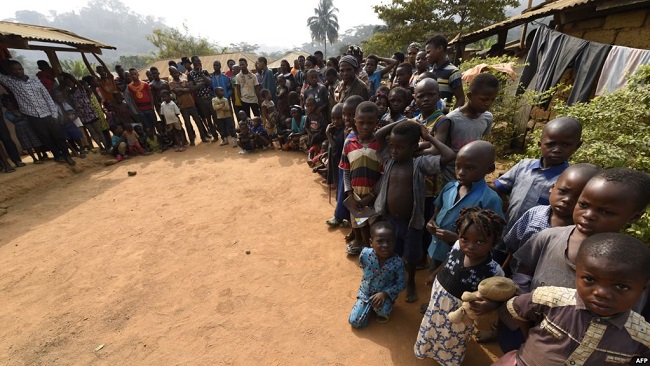Southern Cameroons ‘forgotten’ war leaves refugees in limbo
Three years ago, Akor Pelkings fled his home in western Cameroon, where a conflict raged between the security forces and rebels fighting for an independent state.
Today, the 25-year-old is one of 70 000 Cameroonian refugees in Nigeria, wondering in despair when they can return.
Yet they in turn are among a million people uprooted by a conflict which is now in its fifth year yet remains largely forgotten – even unknown – in the rest of the world.
The violence erupted in 2017, when militants declared an independent state in Cameroon’s Northwest and Southwest regions, home to most of the anglophone minority in the majority French-speaking country.
Both the separatists and government forces have been accused of atrocities in the fighting, which according to the International Crisis Group (ICG) has killed more than 6 000 people.
Pelkings crossed into Nigeria, finding shelter in one of the refugee camps that have sprung up near the border regions, although they often have less international aid than in other conflict areas.
He said:
Why no one cares? Our lives are destroyed, and no one cares. The conflict went to days, to months, now to years.
In dozens of interviews with AFP, Cameroonian refugees in Nigeria described their experience.
A common thread emerged – a process of darkening fear, which began as neighbours, relatives and supporters of the anglophone secessionist movement were whisked away in police vans and were rarely heard of again.
Gerard Tiko’Or Akenji, who founded an agricultural cooperative at a camp operated by the UN refugee agency in Ogoja, eastern Nigeria, said the intimidation was unprovoked.
“They arrest so many youths from my community,” said Akenji, 45, who added that he had been picked up four times from the start of the conflict until he finally fled in March 2019.
Terror at night
“I left the country because of fear of death,” said Akenji.
“I always tied my sneakers, and lie on my bed with my legs down, and my door open, in case of any noise I have to run,” he said.
He added:
The sound of gun and explosives have killed many of old people, because they are very afraid.
Then the schools began to close as threats from separatists and the fear of violence kept students at home.
“At the beginning of the conflict, I had to stop going to high school,” said Pelkings, who dreamed of going to university but now raises chickens in this camp in Nigeria.
In September 2021, the start of the academic year, two-thirds of schools in the two English-speaking regions were closed, depriving 700 000 children and adolescents of education, according to the UN.
Hundreds of schools have been attacked there, according to the campaign group Human Rights Watch (HRW).
Almost all of those attacks were by armed separatist groups who refuse to allow French to be taught.
Even so, said a humanitarian source, “no one (in the camps) will tell you” that the separatists are to blame, because most of the refugees support their cause.
Childbirth alone
Access to health care has also deteriorated dramatically in English-speaking Cameroon.
Health centres have been attacked or occupied.
Chu Bernice Chang will never forget the circumstances of her first birth when at age 21 she delivered her girl, at home, without any help.
The clinic in her village was being used as a rear base for the Cameroonian army, she said.
According to the ICG, 250 villages have been destroyed in the conflict – a punishment for being suspected of helping one side or the other.
Actions of this kind were cited by many refugees as to why they left, sometimes fleeing from one day to the next.
“My village was attacked more than six times,” said Odilia Ntong, a 50-year-old. “They destroyed the house, the shooting, I had nothing, so left.”
For five days she moved through the bush with nine other women, hungry and sleeping on the ground before she managed to cross the border into Nigeria.
Ntong now lives alone in Takum, a small town in eastern Nigeria, in a tiny room that she rents for $3,60 a month.
To survive, she makes traditional hats that she sells on the market, and receives from the UN’s refugee agency, UNHCR, like all Cameroonian refugees in Nigeria, 2 600 naira (five euros) per month.
“It’s an invisible crisis,” said Roland Schoenbauer, the spokesperson for UNHCR in Nigeria.
“The number of refugees kept increasing since 2017, while the funds made available by donors have decreased.”
After five years of war, Pelkings sees little hope his life will improve.
“Here we are safe, but we are hungry,” Pelkings said. “Many of my friends are back in Cameroon. Some were killed, some are still in the bush.”
Source: AFP





